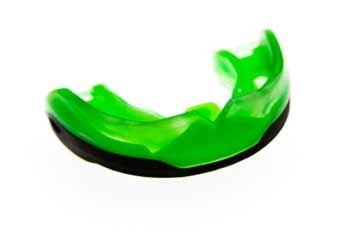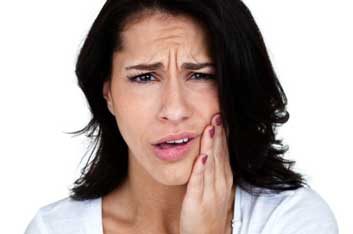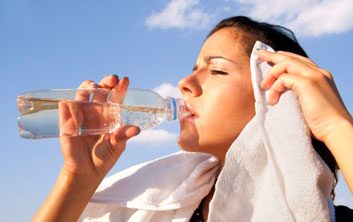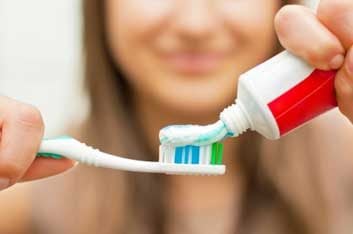
On and off the field
If you play sports, you probably focus on keeping your body in shape. But have you ever thought about the fitness of your mouth? Oral health is important for everyone, on and off the field. But if you’re an athlete, there are special considerations when it comes to looking after your teeth. Here are six tips to pay attention to.

What to do if… you want to play safe
All it takes is one ball to the face, and you could be facing a big round of dental bills. An athletic mouthguard fits over your teeth and helps spread out the impact of any blow. Mouthguards have been proven to lower the risk of broken teeth and injury to lips and gums. They may even prevent concussion in some cases. “The lab-fabricated ones are the best, because they’re made right for your mouth,” says Mandy Hayre, Chair of the Dental Hygiene Diploma Program at Vancouver Island University. But you can also find them in sporting equipment stores, she says, adding: “Any mouthguard is better than none at all.” Want to score on the football field? Get a custom-made mouthguard in your favourite team colours!

What to do if… your tooth gets a knockout
If you lose a tooth while playing sports, don’t fret. There’s a chance you can have the tooth successfully replanted. The most fitting place for it while you head for the dentist or closest ER? Stick it in the socket. “Putting the tooth back in your mouth is the single best thing you can do,” says Hayre. If that’s not possible, store the tooth in milk, a mild saltwater solution or even your own saliva.

What to do if… your teeth turn brown in the pool
If you spend more than six hours a week in a pool with chemical additives, the water’s not the only thing getting treated. Many competitive swimmers notice brownish deposits staining their teeth, known as “swimmers’ calculus.” While this hasn’t been carefully studied, the cause has been reported to be a reaction between pool chemicals and proteins in saliva. What can you do if you like swimming but don’t like stained teeth? Try stepping up your dental cleaning to three or four times a year.

What to do if… scuba diving hurts your mouth
Are you getting jaw pain, aching teeth or sore gums after scuba diving? It could be caused by a poorly fitting mouthpiece. It can also come from changes in air pressure, which can painfully aggravate existing problems like untreated cavities and abscesses. Scuba divers often complain of a dry mouth, which can lead to a higher rate of cavities and mouth infections. If you do a lot of diving, it may help to get a custom-fitted mouthpiece. And make sure you’re taking regular care of your teeth and gums.

What to do if… you find sports to be thirsty work
How do you refresh yourself while you play? A study published in the journal of the Academy of General Dentistry found that sports and high-energy drinks were even more likely to cause tooth erosion than cola drinks. Some athletes sip frequently from a sports drink during every practice. “Every time you put sugar in your mouth, you’re having an acid attack for 20 minutes,” Hayre points out. Even just rinsing your mouth with plain water after a sugary drink will help reduce the damage. Better yet, choose water for hydration – unless you’re active non-stop for more than an hour, in which case the sports drink will help replenish your electrolytes.

What to do if… you don’t want to be sidelined
A well-balanced diet is nourishing for your body. But did you know that good nutrition also keeps your teeth and gums healthy? Regular brushing and flossing will help prevent cavities and gum disease. No one enjoys playing sports when a toothache is throbbing. An oral health problem could leave you sidelined, so it’s a good idea to give your mouth the care – and good food – it needs.
Related:
• 6 ways to reduce tooth sensitivity
• 4 things you should know about tongue health
• 13 tricks to keep your gums and teeth clean
